Ferrets are lively, smart animals that can be delightful companions. However, they have a limited lifespan. It’s vital to spot a dying ferret’s signs. This helps ensure a dignified, comfortable end. This article will examine subtle but important signs that a ferret is nearing death. Knowing these signs helps you decide when to consult a vet. Or, you may just want to comfort your pet in its last days. Knowing these cues will help your ferret in its last moments. It will ensure it gets the care and compassion it deserves.
Table of Contents
Understanding Ferret Health
Ferrets typically have a lifespan of 5 to 10 years, averaging around 7 years. Their health may be delicate, with older ferrets prone to issues such as adrenal disease, insulinoma, and heart conditions. As ferrets age, their immune response weakens, increasing the risk of illness. This decline shows that pet owners must be watchful. They should proactively check their ferret’s health. Regular vet check-ups and watching for changes can help catch problems early. As ferrets age, we must stay informed and attentive. This is key to their quality of life.
Key Factors Affecting Their Well-Being
Diet, environment, and genetics significantly affect a ferret’s health. Regular vet check-ups, a balanced diet, and mental stimulation help promote longevity. Despite the best care, ferrets will inevitably exhibit signs of health decline. It’s crucial for owners to recognize these warning signs early. Observing changes in behavior, appetite, or energy levels can provide important clues. Also, a clean living space and social interaction boost their well-being. Knowing common health issues in ferrets can help owners. It can enable them to take action and keep their pets happy and healthy.
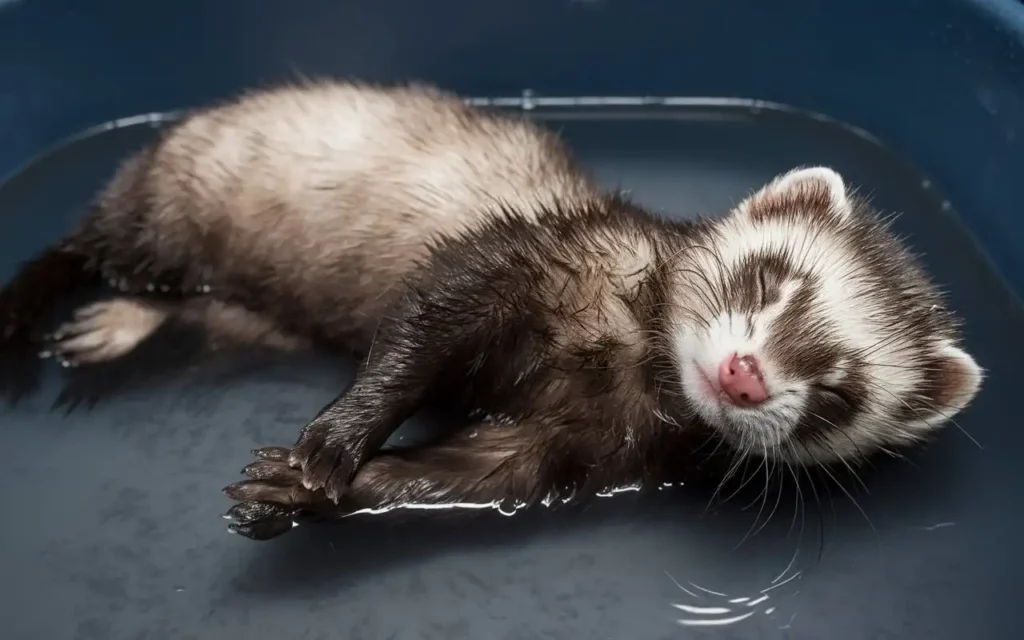
Why It’s Crucial to Notice Early Ferret Dying Signs
Ferrets are known for concealing their illnesses. This instinct to hide pain or discomfort serves as a survival tactic. Unfortunately, it complicates pet owners’ ability to detect health issues. Recognizing the signs of a ferret in distress is crucial for timely intervention. Early detection can greatly improve the chances of getting needed medical help or end-of-life care. Being vigilant and observant is essential to ensure your ferret’s well-being. Learn the subtle signs that your pet may be unwell. This knowledge will help you act quickly and effectively in their time of need.
Importance of Timely Medical Intervention
Ferrets often conceal their health issues, making early detection essential. Pay attention to any changes, no matter how minor, and consult your veterinarian right away. Quick action can sometimes extend your ferret’s life or, at the very least, enhance their comfort during their remaining time. Regular check-ups and vigilance are vital for their well-being. By being proactive, you can help ensure a better quality of life for your furry companion. Subtle signs can indicate problems. So, prioritizing their health is crucial for their happiness and longevity.



The Subtle Signs of a Ferret in Decline
Certain signs of a declining ferret can be easily missed. Pay attention to changes in behavior, such as increased lethargy or reduced interest in play. Subtle shifts in appetite, like eating less or avoiding food altogether, can also signal health issues. Monitor for weight loss, which may occur gradually. Additionally, watch for changes in grooming habits; a ferret that neglects its fur might be unwell. Respiratory problems, indicated by coughing or labored breathing, are serious. Any unusual discharge from the eyes or nose warrants immediate attention. Recognizing these symptoms early can help ensure your ferret receives necessary care.
Sudden Loss of Appetite
A key sign that a ferret may be nearing the end of its life is a noticeable decline in appetite. While it’s common for these animals to occasionally eat less, a persistent lack of interest in food can signal a serious underlying issue. This behavior should not be overlooked, as it often suggests discomfort or illness. Observing your ferret closely for changes in eating habits is essential. If your pet’s food intake drops significantly or for a long time, consult a vet. It’s important to address any health issues.
Lethargy or Weakness
Ferrets are generally lively animals. If your ferret starts to show signs of unusual lethargy or weakness, it may indicate a problem. Observe their playfulness and note how frequently they engage in activities. Additionally, monitor their energy levels during playtime. An increase in tiredness or a lack of interest in their usual antics can signal underlying health issues. It’s essential to stay vigilant and recognize any changes in behavior. Early detection can help address health issues. It keeps your ferret happy and active. Regular check-ups with a vet can also help maintain their well-being.
Labored Breathing or Difficulty Breathing
Respiratory difficulties may indicate serious underlying conditions like heart disease or infections. If your ferret has labored breathing, wheezing, or other signs of respiratory distress, consult a vet right away. Early intervention can greatly improve treatment outcomes. Observing your ferret’s behavior and health closely is essential. Watch for changes in appetite, energy levels, or unusual sounds. Prompt veterinary care can help identify the cause of the issues and start appropriate treatment. Prioritize your ferret’s health to ensure it receives the care it needs for a better quality of life.
Behavioral Changes as Ferret Dying Signs
Ferrets exhibit strong habits, and shifts in their behavior often serve as a crucial alert. These small animals thrive on routine, finding comfort in their daily activities. When they suddenly act differently, it can indicate stress or potential health issues. Owners should pay close attention to these changes, as they may signal discomfort or illness. Regular observation of their eating, sleeping, and playing patterns is essential. Understanding what is normal for each ferret helps identify concerning behavior. Proactive monitoring can lead to timely interventions. It can ensure the well-being of these playful and curious pets.
Isolation and Withdrawal
A typically sociable ferret that avoids interaction may be unwell. This behavior is a poignant sign of distress, suggesting that your ferret could be entering its final days. Observing such changes in demeanor can be heartbreaking, as it reflects their struggle. If your pet shows this withdrawal, it’s essential to assess their overall well-being and consult a veterinarian. Watching for such signs can help your ferret in this tough time. It will let you comfort them in their last moments.
Increased Aggression or Unusual Behavior
Sudden aggression or agitation may signal your ferret is in pain. It’s essential to monitor for signs of restlessness, increased biting, or a tendency to hide more often than normal. These changes can reveal underlying issues that need attention. Observing your ferret closely can help identify any distress. If you notice these behaviors, consider consulting a veterinarian for further assessment. Early intervention can make a big difference for your pet. Always prioritize their health. Be alert to unusual behaviors. Seek professional advice if needed.
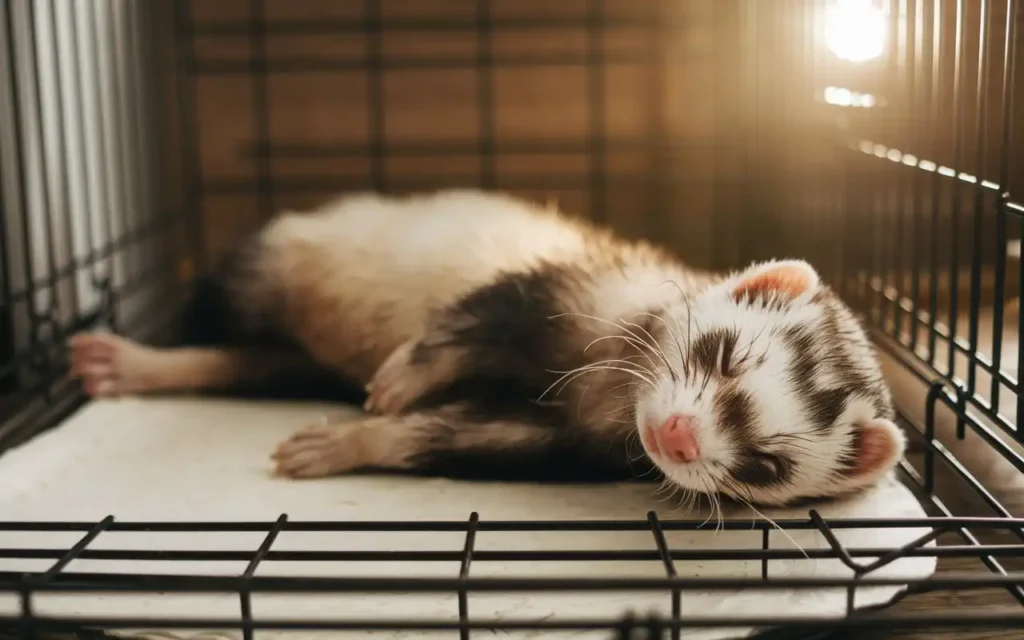
Physical Symptoms to Watch Out For
As ferrets near the end of life, their bodies change. Their emotions and behaviors change too. These transformations may become more apparent, affecting their overall appearance and demeanor. It’s essential to check these signs closely, as they can indicate various health issues. However, it’s crucial to consult with a veterinarian for a thorough evaluation. The vet can explain the causes of these changes. This will help care for the ferret during this tough time. Knowing these shifts helps caregivers comfort and make decisions about their pets’ well-being.
Weight Loss Despite Normal Eating Habits
A ferret that eats normally yet loses weight may indicate an underlying health issue. Conditions like cancer or gastrointestinal disorders could be the cause. These health problems often disrupt nutrient absorption. This causes weight loss despite regular eating. Monitoring your ferret’s behavior and appetite is crucial. If weight loss persists, a veterinarian’s consultation is essential for diagnosis and treatment. Early intervention can significantly improve outcomes. Keep an eye on any other symptoms, such as changes in energy levels or stool consistency, as these may provide further insight into your pet’s health.
Unexplained Hair Loss or Dull Coat
A noticeable sign that a ferret may be dying is a shift in coat condition. If the fur appears dull or patchy, especially with hair loss, it can signal that the ferret’s health is deteriorating. This change may suggest that the animal’s body is weakening or struggling with an illness, such as adrenal disease. Monitoring coat health is crucial, as these signs can reflect underlying issues. Observing these changes can help pet owners take timely action. Coat condition is vital for your ferret’s well-being in tough times.
Gastrointestinal Issues in Ferrets
Ferrets often have gut problems. This can indicate serious health issues. These signs may manifest as diarrhea, vomiting, or a lack of appetite. When a ferret shows these symptoms, it can signal distress that requires immediate attention. Observing changes in behavior, such as lethargy or hiding, can also be concerning. Early detection is crucial in managing their health effectively. Owners should watch their ferrets. If they show gut issues, consult a vet. Prompt action can make a significant difference in the well-being of a ferret facing potential health threats.
Diarrhea or Vomiting
Chronic diarrhea or vomiting in ferrets signals a serious issue. These symptoms can result in dehydration, posing significant risks, particularly for older ferrets. Dehydration can escalate quickly, leading to severe health complications. It’s crucial to monitor any signs of gastrointestinal distress in your pet. If these signs continue, pursue veterinary care right away. Early intervention is vital to prevent further deterioration of your ferret’s condition. Maintaining proper hydration is essential for their overall well-being. Always provide fresh water. If your ferret vomits or has diarrhea, consult a vet. Your pet’s health depends on prompt care.
Persistent Bloating or Abdominal Pain
A hard or swollen stomach in your ferret may signal a serious gastrointestinal problem. If your pet reacts with pain when touched, seek veterinary help immediately. These symptoms could point to an obstruction or a tumor, both of which need prompt attention. It’s crucial to check your ferret’s behavior and health closely. Changes in appetite, lethargy, or unusual vocalizations can also be warning signs. Early detection and treatment are key for the best outcome. Always consult a veterinarian if you notice any concerning changes in your ferret’s health to ensure they receive the care they need.
Neurological Signs
When a ferret is nearing the end of its life, neurological symptoms can become apparent.
Seizures or Tremors
Seizures or shaking in ferrets signal serious health issues. They need urgent veterinary care. These alarming symptoms often correlate with severe conditions, such as insulinoma. Insulinoma is a tumor that affects the pancreas, leading to dangerous drops in blood sugar levels. Prompt diagnosis and treatment are crucial to improving the ferret’s chances of recovery. If you observe such signs in your pet, do not hesitate to seek professional help. Early intervention can greatly help your ferret’s health and well-being. Always prioritize your ferret’s health and safety.
Uncoordinated Movement
If your ferret struggles to walk or moves awkwardly, it may have a neurological issue or be weak due to age. Observing these behaviors can be concerning, as they affect your pet’s mobility and overall well-being. Neurological disorders can arise from various causes, impacting coordination and balance. Alternatively, age may lead to diminished strength and agility in older ferrets. It’s important to monitor your pet closely and consult a veterinarian for a thorough evaluation. Early diagnosis can help provide the appropriate care and support your ferret needs to maintain a good quality of life.

Hydration and Dehydration Signs
Water intake is a good indicator of your ferret’s overall health.
Unusual Thirst or Lack of Drinking
Excessive drinking or a complete refusal of water in your ferret signals potential health concerns. These behaviors may point to kidney problems or dehydration, both critical issues for aging ferrets. If you notice these signs, it’s essential to consult a veterinarian promptly. Early intervention can make a significant difference in your pet’s health outcome. Ensure your ferret has access to fresh water at all times, as hydration is crucial. Regular check-ups can help catch any underlying issues before they escalate. Keep a close eye on your ferret’s drinking habits to maintain its well-being and health.
Changes in Waste
The condition of your ferret’s waste can provide insights into their health.
Irregular Bowel Movements or Incontinence
Alterations in bowel habits or struggles with waste control may signal a significant health issue. This is especially true if there are other signs of distress in ferrets, like lethargy or a loss of appetite. We must monitor these changes closely. They may indicate medical issues that need attention. Watch your ferret’s behavior and health. It’s key to spotting problems early. If you notice these signs, consult a veterinarian promptly to ensure your pet receives the necessary care and support. Timely intervention can make a large difference in your ferret’s well-being.
Veterinary Care for a Dying Ferret
When to Call the Vet
Should you observe any signs noted earlier, it’s crucial to reach out to a veterinarian promptly. Acting quickly can significantly impact your ferret’s well-being. Early intervention is vital, even if the primary aim is to provide comfort during its last days. A veterinarian can assess the situation, recommend appropriate care, and help ensure your pet’s quality of life. Don’t hesitate to seek professional guidance. Your ferret deserves the best support possible. Timely action can ease discomfort and improve the experience during this tough time. Prioritize your pet’s health and comfort above all else.
How to Comfort Your Ferret During Its Last Days
Your vet will address the medical aspects of care, but your ferret will also seek comfort and affection in its last days. Create a peaceful, warm environment for them. Present their preferred dishes to lure them to dine. Being present and supportive can greatly improve their experience. Simple gestures, like gentle petting or speaking softly, can reassure them. Cherish these moments together, as your love can bring solace. Remember to be patient and attentive to their needs, ensuring they feel safe and cherished as it transitions.
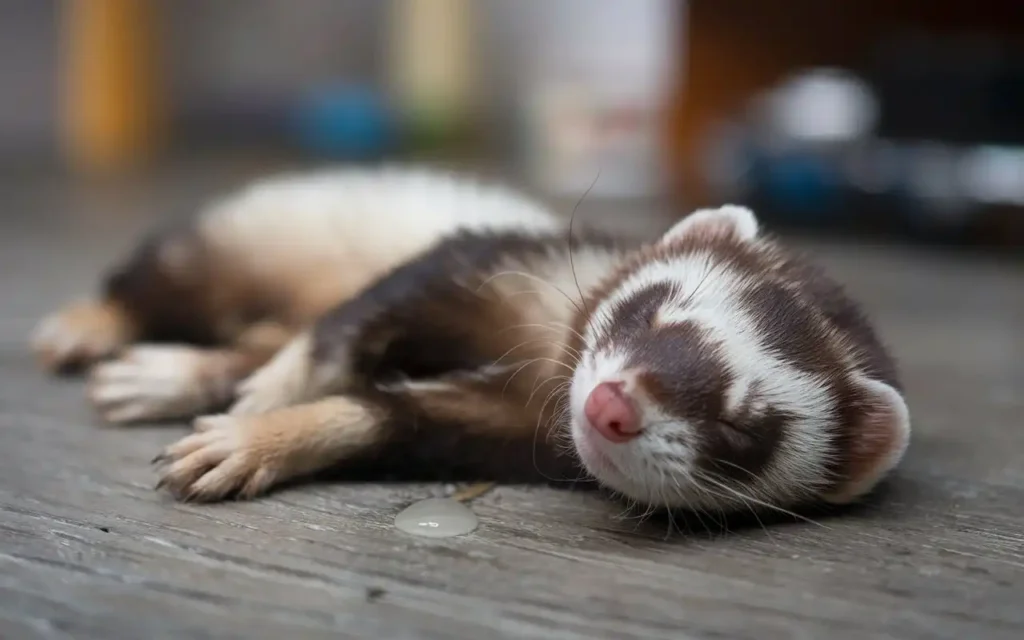
Conclusion
Identifying the signs of a ferret in decline is crucial for pet owners. These signs can be subtle. So, watch your ferret closely. Monitor its behavior, health, and daily routines. By noticing changes early, you may be able to prolong your pet’s life or, at the very least, ensure a more serene and comfortable transition. Observing your ferret’s appetite, energy levels, and interactions can provide valuable insights. Being proactive lets you respond quickly. It can greatly improve your ferret’s quality of life in their final days. Prioritize awareness to support your beloved companion.



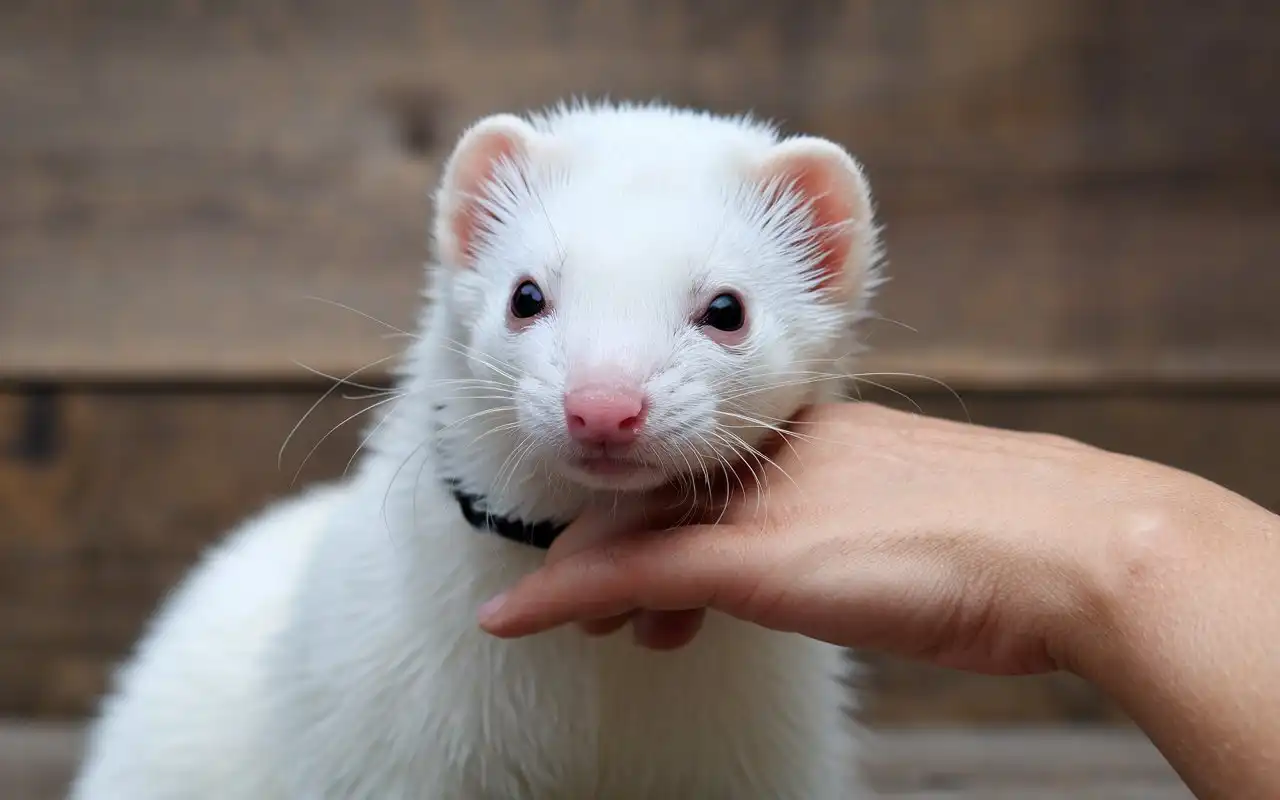

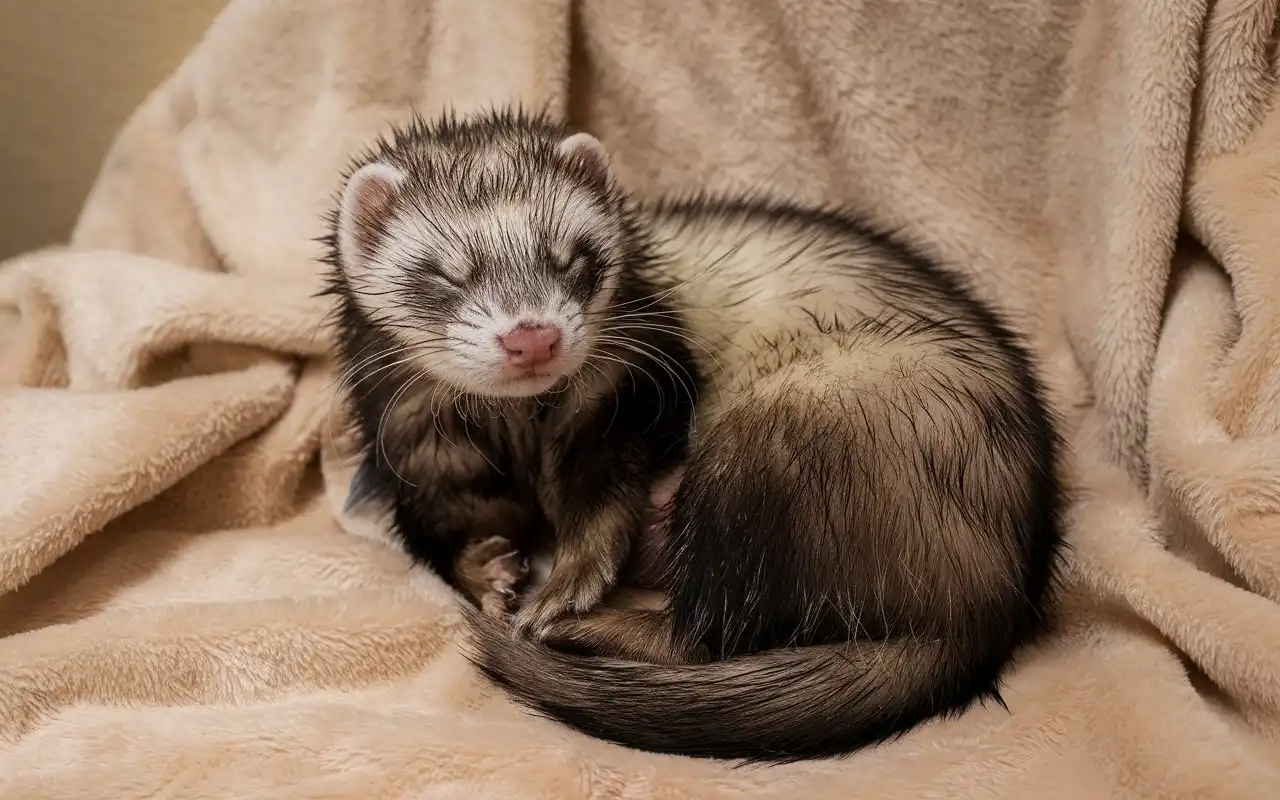

Pingback: Ferret Diarrhea: Signs to Watch For and How to Prevent It
Pingback: Estrogen Toxicity Ferrets: A Comprehensive Guide